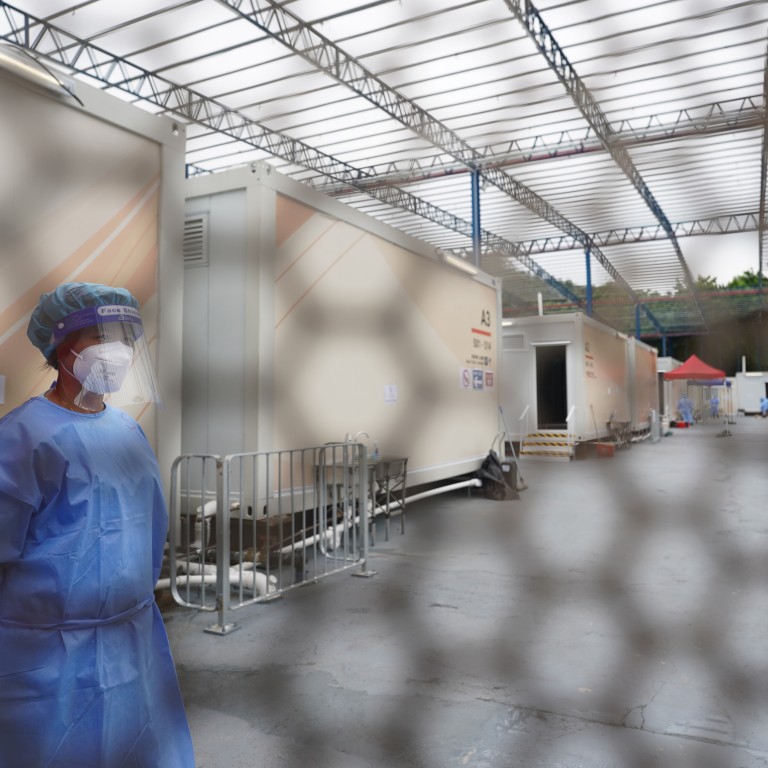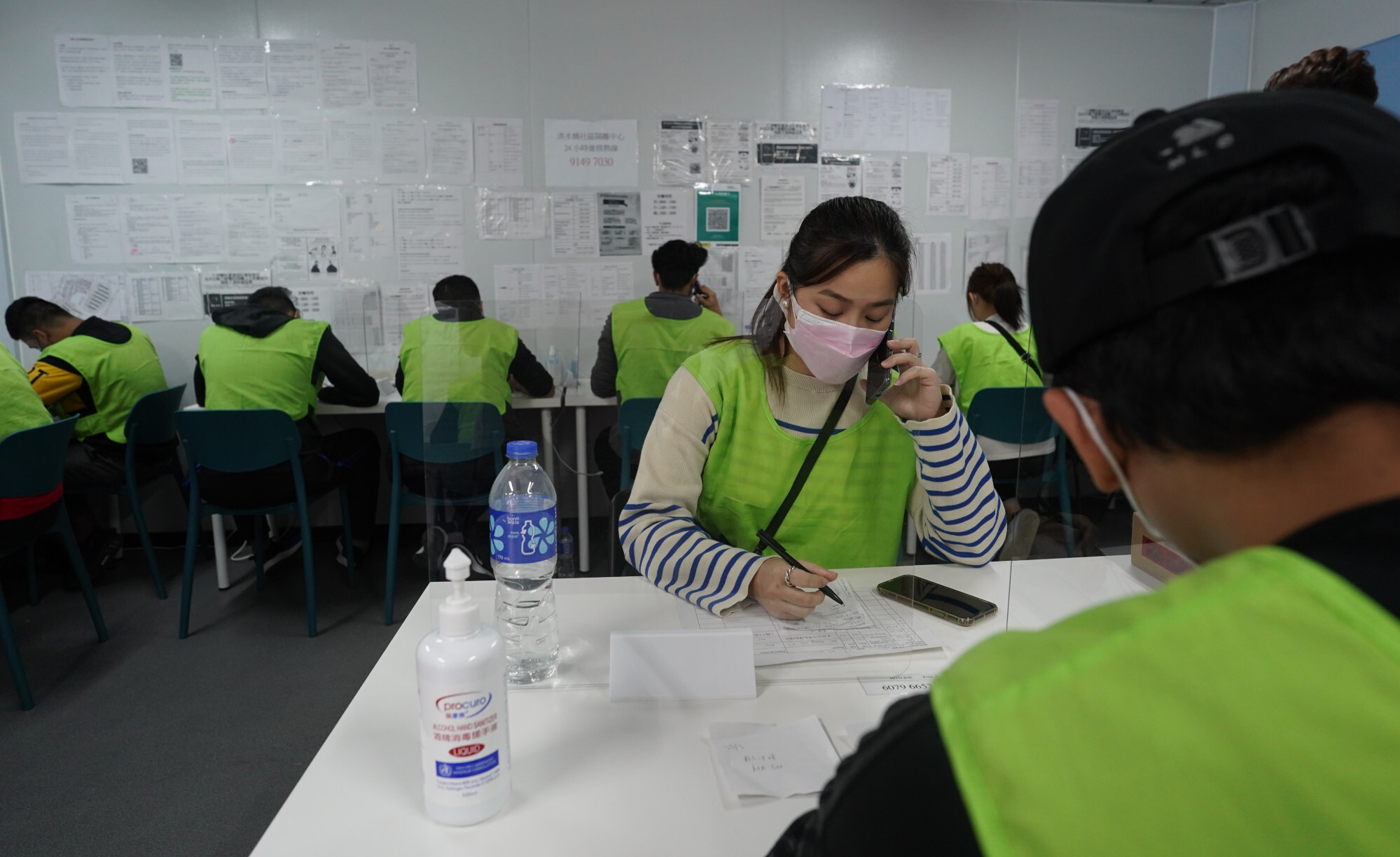
Staff at Hong Kong coronavirus isolation facility on mission to make patients from ethnic minority communities feel at home
- The staff members, recruited from the local Indonesian, Filipino and Pakistani communities, help patients who are not comfortable communicating in English or Cantonese
- ‘Coming into quarantine, they are bound to be nervous and unsure of the procedures. I do my best to chat with them and let them know they are not alone,’ one staff member says
When Fatimah Angelia received a phone call in the middle of the night requesting sanitary towels, it came as something of a shock.
It turned out that the call was coming from an Indonesian domestic helper currently in quarantine at the Hung Shui Kiu Community Isolation Facility, where Angelia works as a staff member dedicated to taking care of members of ethnic minority groups.
“I don’t even know how she got my personal number,” she recalled with a laugh. “But I helped her contact the staff at the facility and they brought her the items within five minutes.”
Hong Kong minority groups, ex-offenders say they need HK$10,000 e-vouchers too
Since Angelia started working at the facility, she has become a sort of mother figure for Indonesian domestic helpers in isolation. On top of her daily duties manning a hotline and delivering meals, the 60-year-old works to address worries unique to the facility’s Muslim patients, such as concerns over accidentally eating meals containing pork.
Angelia is part of a team of 15 recruited by the Security Bureau to take care of patients who have difficulty communicating in Cantonese and English. The team of Filipino, Indonesian and Pakistani staff members seek to provide a sense of familiarity and bridge cultural gaps for ethnic minority patients in isolation.
Special arrangements at the Hung Shui Kiu facility include a hotline manned by staff fluent in Urdu, Hindi, Bahasa Indonesia and Tagalog, as well as Halal-certified food options.
With the assistance of the Kowloon Mosque and Islamic Centre, the facility has also acquired dozens of prayer mats and copies of the Koran so Muslim patients there can say their daily prayers.

Going forward, all ethnic minority patients will be sent to Hung Shui Kiu for isolation so as to better concentrate resources, said Man Nga-man, a member of the Security Bureau’s anti-epidemic task force. The newly opened 1,600-bed facility currently houses 250 members of ethnic minority groups, and around 150 rooms are specifically earmarked to service Muslim patients.
The task force has also made special arrangements ahead of the Muslim holy month of Ramadan, which falls in April and May this year. Meals prepared by a Halal-certified caterer will be delivered to Muslim patients at 3am and 7pm to allow them to fast during the day, and in the evenings the facility will also be serving medjool dates, a traditional staple of the fast-breaking meal known as iftar.
Shiermaine Lam, a Filipino-Chinese staff member at the facility, said that being able to help and provide emotional support to patients was the most rewarding part of her job. She recalled a phone call from a Filipino domestic helper asking nervously in English for a cup of coffee. When she realised Lam could speak Tagalog, she sounded relieved and spoke more comfortably about her requests.

“Coming into quarantine, they are bound to be nervous and unsure of the procedures. I do my best to chat with them and let them know they are not alone,” Lam said.
Shahzeeb, 23, who only goes by one name, had previously worked as a translator for the Pakistani community during the lockdowns in Yau Ma Tei earlier on in the pandemic. He joined the team at Hung Shui Kiu so he could continue giving back to his community, saying he hoped to alleviate any fears patients might have when sent into isolation.
“They’re entering an unfamiliar environment, so I want to help them as much as I can,” he said.

